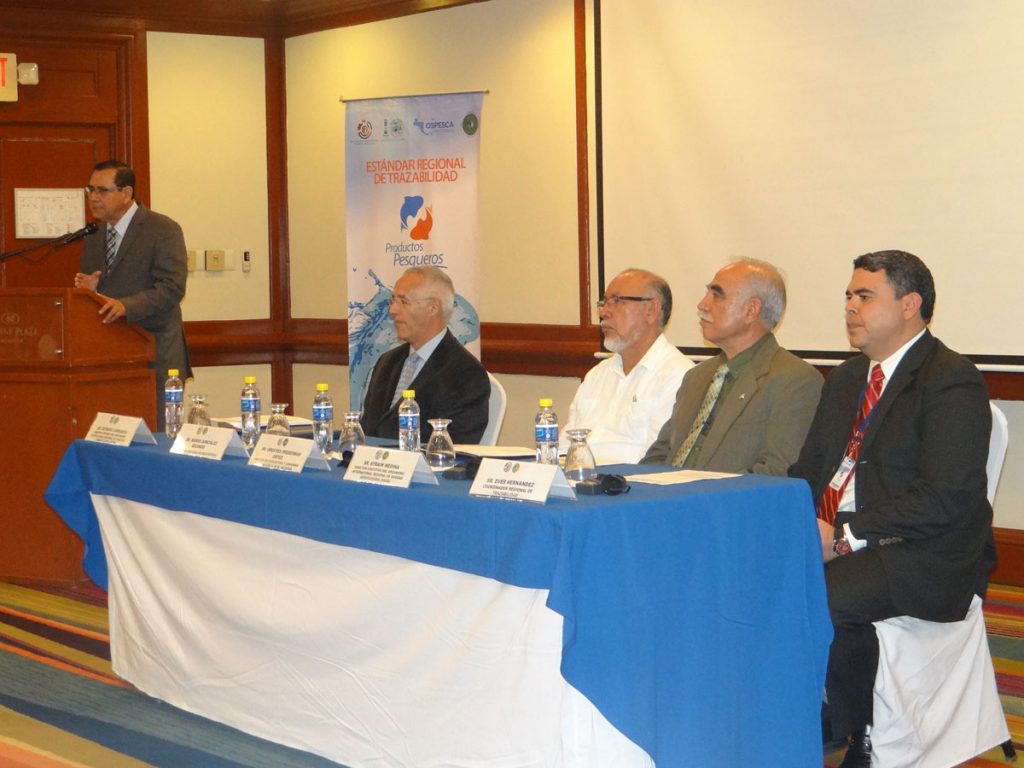June 6, 2017 – In San Salvador, El Salvador, from June 5 to 8, 2017, the Regional Workshop for the Elaboration of the Regional Standard of Traceability of Fishery Products is carried out, with the aim of harmonize and agree the procedures and design of a Regional Traceability Standard applied to fishery products to be subsequently submitted to the competent authorities for its approval and implementation.

The event is attended by delegates from the private sector, fisheries and health sector of the Governments of the countries which form the International Regional Organization for Agricultural and Livestock Health (OIRSA); As well as the Organization of the Fisheries and Aquaculture Sector of the Central American Isthmus (OSPESCA). Since this workshop is coordinated by the UNDP/GEF CLME+ Project of the Large Marine Ecosystems of the Caribbean and Northern Brazil, through the Ecosystem Approach for the Caribbean Spiny Lobster Fishery (ECOLANGOSTA+) project, delegates from Jamaica and Colombia are also present.
As part of the technical cooperation between the Regional International Agricultural Health Organization (OIRSA) and the Organization of the Fisheries and Aquaculture Sector of the Central American Isthmus (OSPESCA), previous actions have been developed aimed at elaboration and implementation of a Regional Traceability Standard for Fish Products. Currently, OSPESCA is executing the ECOLANGOSTA+ sub-project of the CLME+ Project, traceability has been considered as a priority issue. Likewise, OIRSA has prioritized the issue of Fishery Products for 2017 through the Regional Unit for Agricultural Traceability.
The ECOLANGOSTA+ subproject aims to maximize sustainable contributions of the spiny lobster to the well-being of people and socio-economic development in the CLME+ region, while preserving the structure, diversity and functioning of the ecosystems that host this species.


